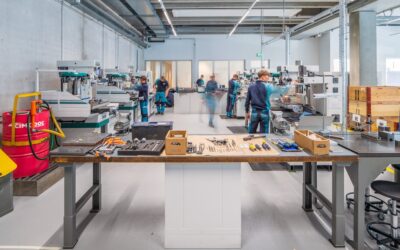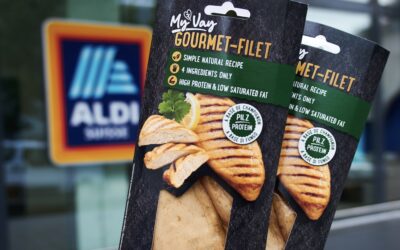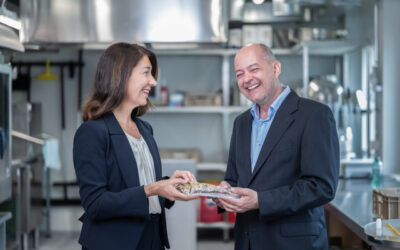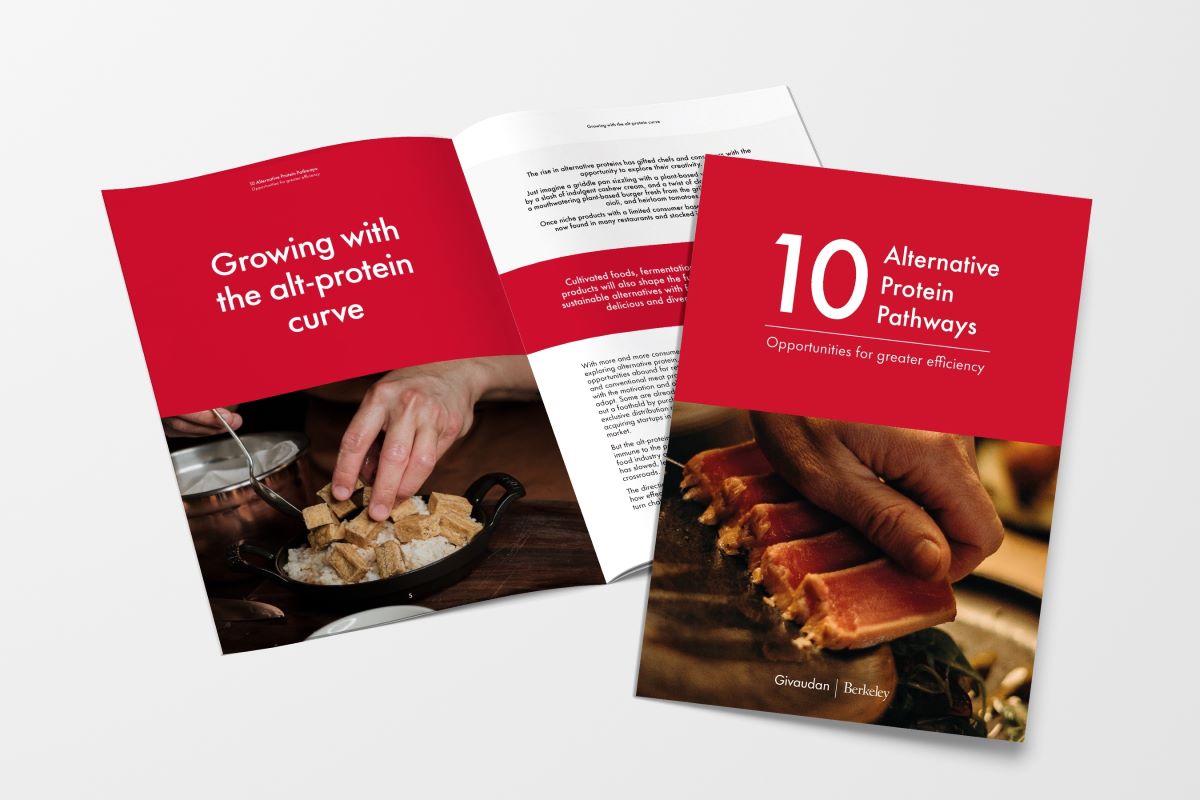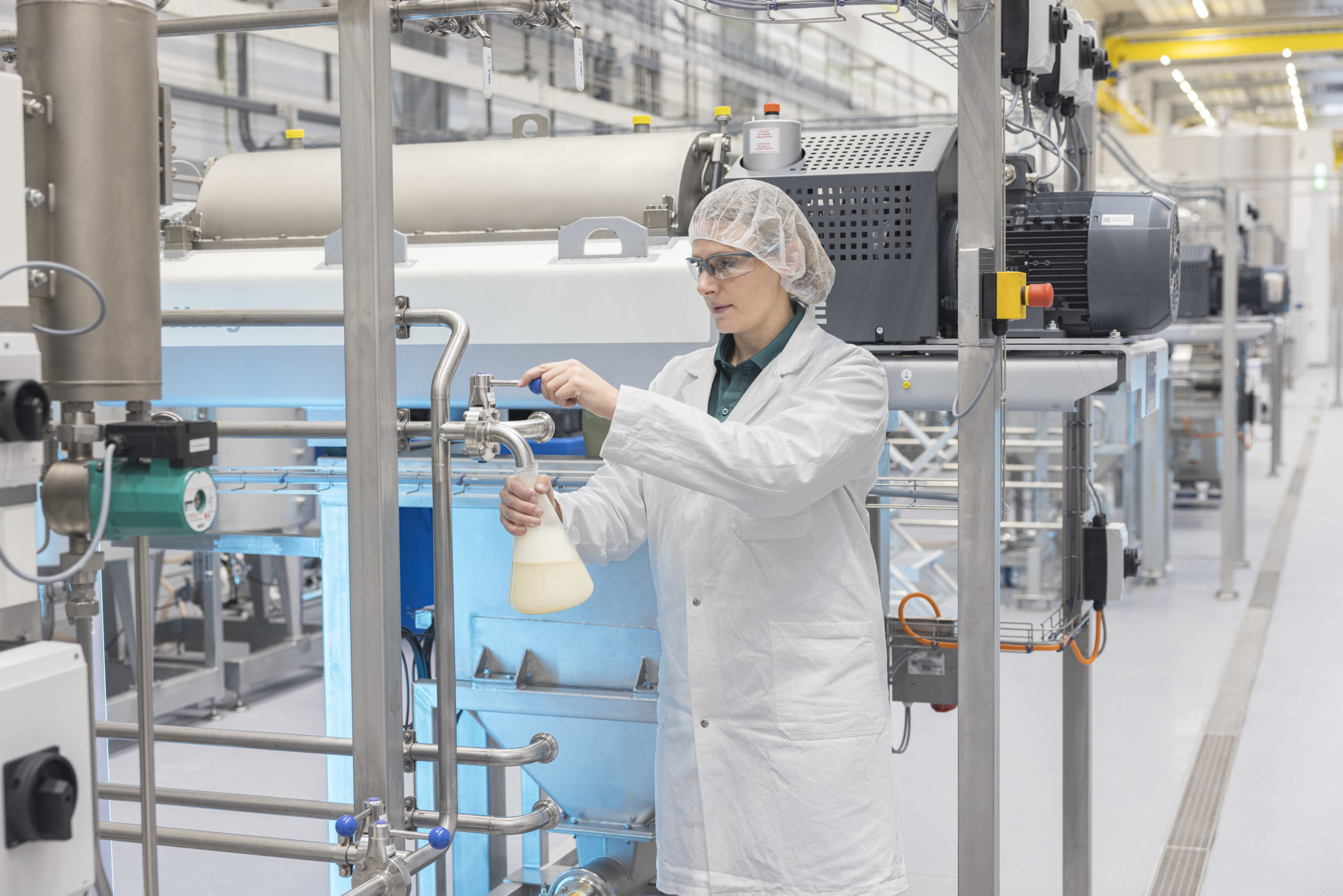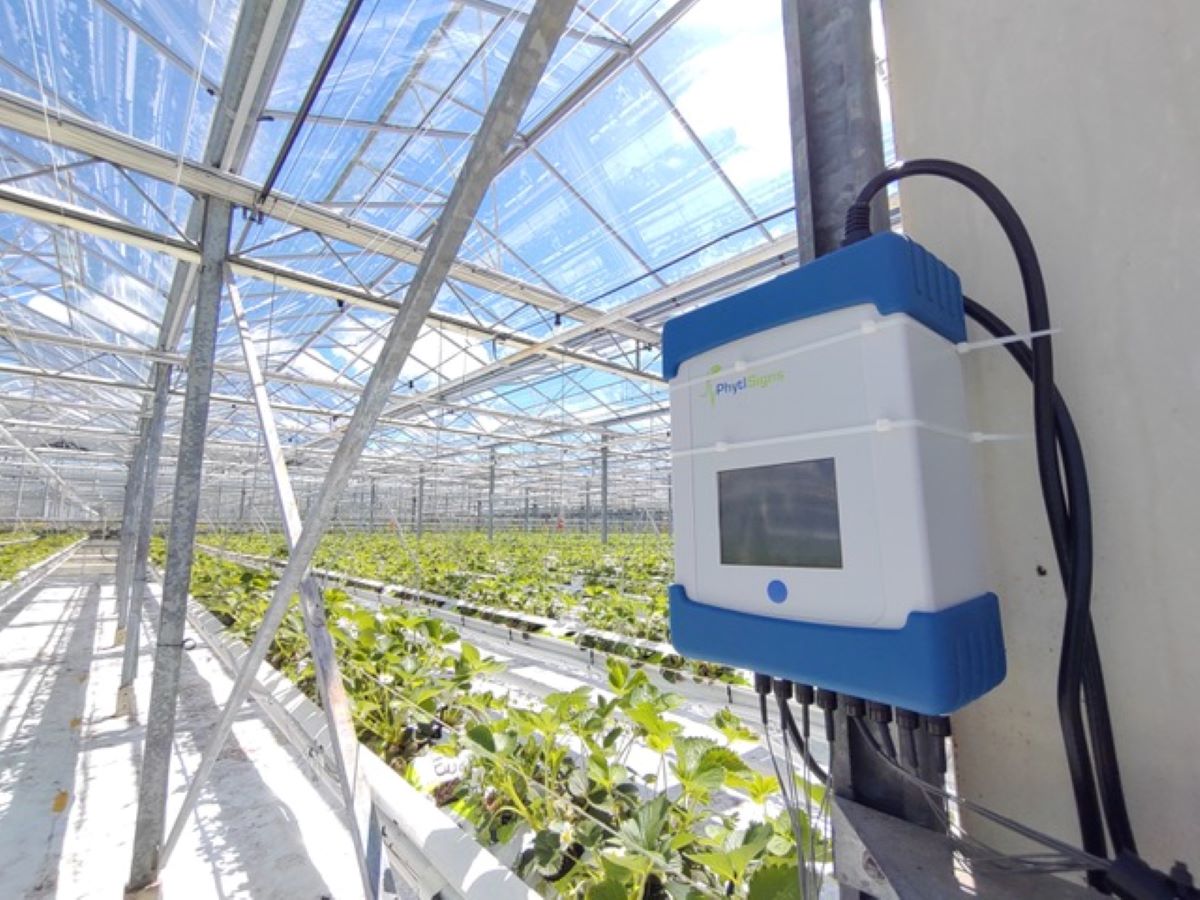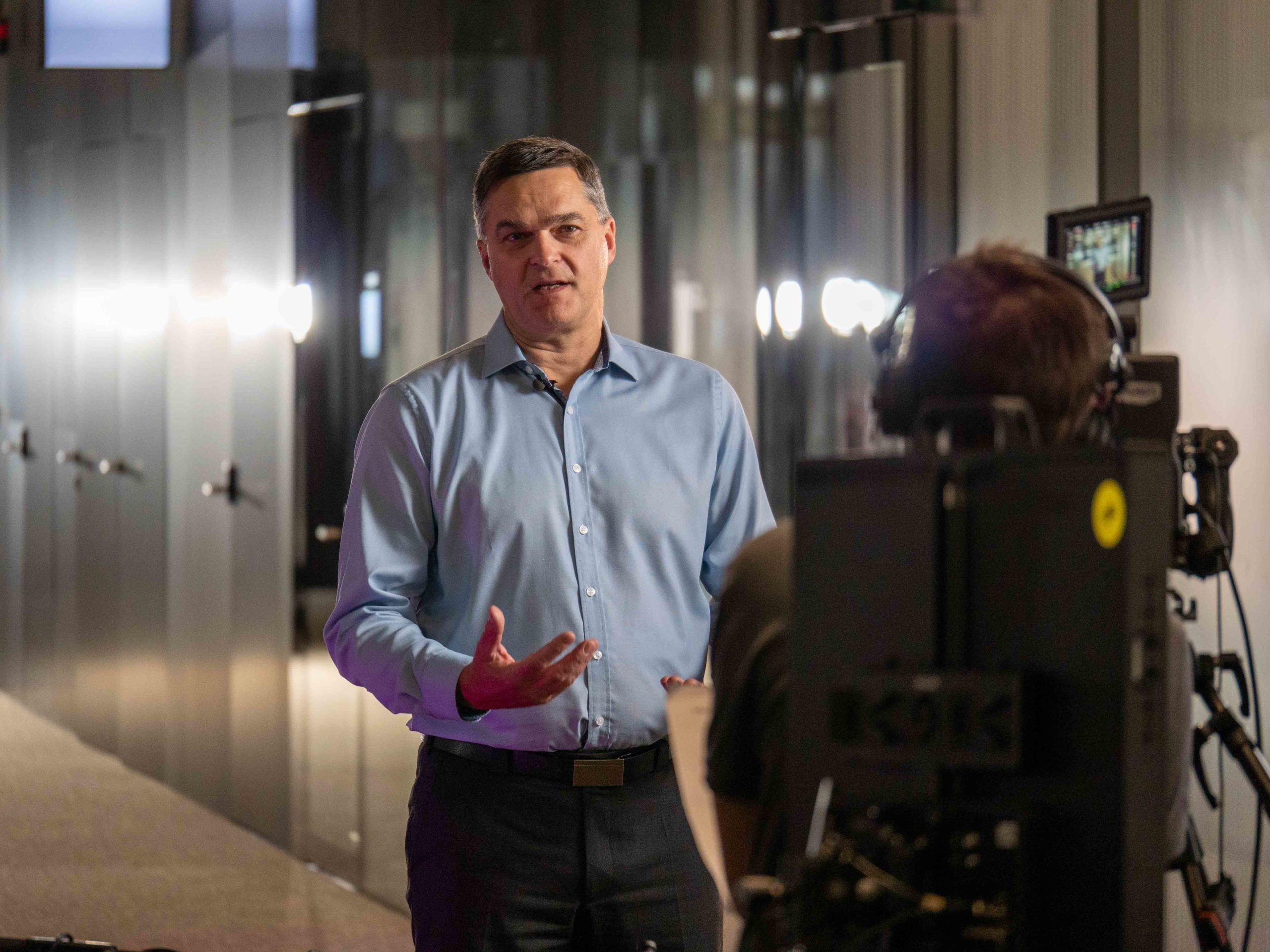Valley partner Bühler recently...
Bühler teams up with Agroloop to provide proven insect rearing technology
Bühler teams up with Agroloop to provide proven insect rearing technology
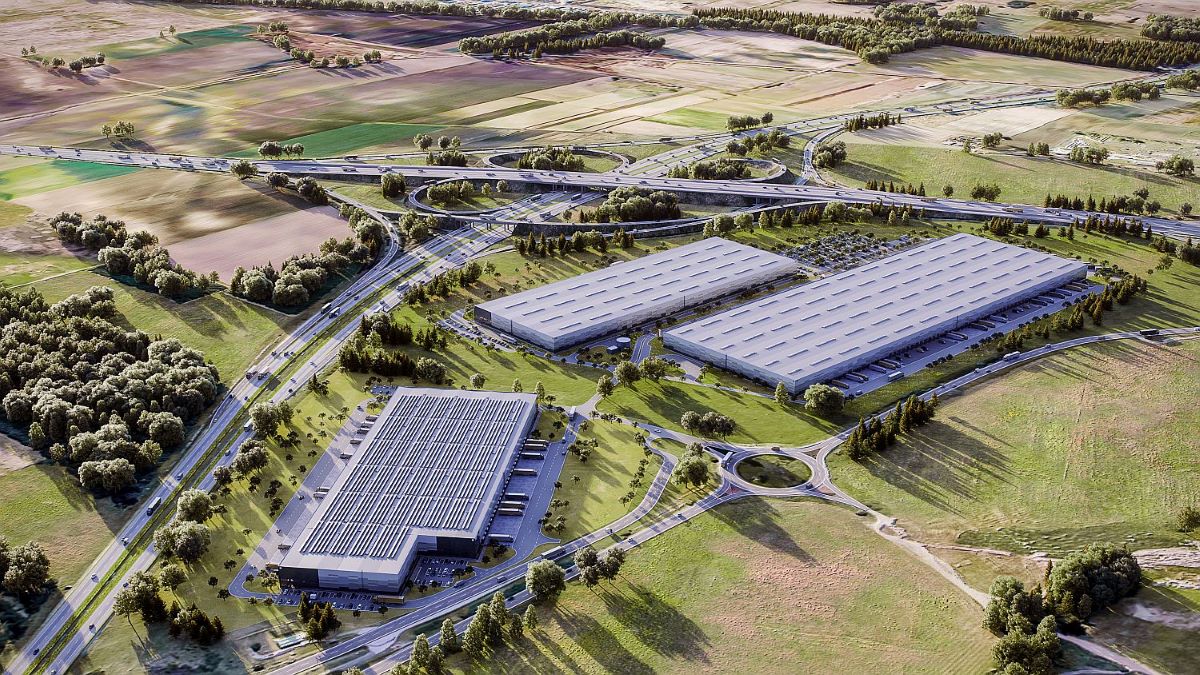
Hungarian insect producer Agroloop teamed up with Bühler to use their sophisticated insect growth system for its industrial black soldier fly plant. The facility will produce up to 4,000 tonnes of animal feed ingredients per year and will be built in Üllő, Hungary. Bühler will deliver its crate-based nursery and rearing technology, which will enable a quick ramp-up of the plant for commercial production. Agroloop plans to launch its first products by the end of 2024, contributing to a more sustainable animal feed value chain.
Following its foundation in 2017 and the successful operation of a pilot facility, Agroloop got the green light for the implementation of an industrial insect plant in Hungary in 2022. Now they are working at full speed to construct the plant and get it operational. The insect facility will be realized in an existing building of the Aerozone Park in Üllő, which is located next to the Budapest Ferenc Liszt International Airport. In the new plant Agroloop – supported by Bühler’s insect technology expertise – will produce more than 25,000 tonnes of black soldier fly larvae that will be turned into sustainable feed ingredients for the pet food, aquaculture, and livestock sector.
The plant is only the first step in Agroloop’s strategy to make insect feed ingredients available for the Central and Eastern European (CEE) agribusiness. “The abundance of food processing by-products presents a unique opportunity for Agroloop’s multi-plant rollout strategy in the CEE region. Leveraging our strategic partnership with the leading regional feed producer UBM Group, we improve feed quality and sustainability creating future-proof feed formulas. This enables Agroloop to focus on rapid expansion and solidifies our position as a key player in the region,” says István Nagy, co-founder and CEO of Agroloop.
Proven technology for short ramp-up time
Agroloop employs a local engineering company to integrate the various technology packages. The heart of this system is the insect growth technology, which mainly determines the plant yield and has a major effect on business performance. For their insect growth system, Agroloop has selected Bühler’s nursery and rearing technology, which has several years of a track record in the insect industry. “We’ve meticulously assembled a best-in-class technology supplier portfolio to build our plant. Bühler plays a crucial role in providing the framework and core components for this design. By choosing Bühler’s technology, Agroloop can enter the value chain with the highest standards,” says István Nagy.
Andreas Baumann, Head of Market Segment Insect Technology at Bühler, added: “We are very proud to be part of this pioneering project for the CEE region and delighted to see that our solutions will contribute to more sustainable feed supply chains.”
Sustainable protein
In the pursuit of sustainable and environmentally friendly practices, the CEE region is increasingly turning to alternative sources for feed ingredients. By incorporating insects into the feed supply chain, the region can address environmental concerns, reduce dependence on imported protein sources, and contribute to a circular economy approach. In addition, innovative feed formulations containing insects can optimize animal health and growth, thus leading to more efficient livestock production systems.
Insects can be reared on agricultural and food processing by-products, transforming these materials into high-quality protein. This approach not only reduces the environmental impact of this value chain but also creates a closed-loop system where resources are reused and recycled. The European Union has historically been dependent on imported protein sources for animal feed, contributing to issues such as deforestation and habitat destruction in other parts of the world. By embracing the commercialization of insect-based livestock feed, the region can increase feed efficiency, reduce reliance on external sources, and contribute to local and regional food security.
Andreas Baumann says: “The incorporation of insect ingredients in animal feed presents a compelling solution to the challenges faced by the livestock industry. Besides providing nutritious and sustainable protein source, insects also empower local economies to become self-sufficient. That is why insect protein is seen as a key component for a more sustainable and resilient food system.”
About Bühler
Bühler’s goal is to create innovations for a better world. To achieve this, the company intends to harmonize the needs of the economy, people and nature. As an important solution partner for the food and mobility industries, Bühler has developed a strategy to reduce greenhouse gas emissions in its operations by 60% by 2030 (Greenhouse Gas Protocol, Scopes 1 & 2, base year 2019). The company is also committed to offering scalable solutions that reduce energy, waste and water in its customers’ value chains by 50% by 2025. Billions of people come into contact with Bühler technologies every day to meet their basic needs for food and mobility. Two billion people eat food produced on Bühler systems every day. One billion people travel in vehicles whose parts were produced using Bühler technologies. Countless people wear glasses, use smartphones and read newspapers and magazines. They are all manufactured using Bühler process technologies and solutions. Thanks to this global relevance, Bühler is in a unique position to transform today’s challenges into sustainable business areas. Bühler contributes to feeding the world safely. And the company contributes to climate protection by producing solutions that lead to more energy-efficient cars, buildings and systems.
Bühler invests up to 5% of sales annually in research and development. In 2022, around 12,700 employees generated sales of CHF 3.0 billion. The Swiss family company is active in 140 countries around the world and operates a global network of 105 service stations, 30 production plants and application centers in 23 countries. Find out more on their website.
Never miss a Swiss food innovation morsel.
Latest News
Bühler introduces vocational fast-track training
Smart hires, strong starts: building a food innovation team in Switzerland
Your technology may be world-class –...
planetary scales B2B ingredient sales as ALDI Suisse selects Libre® mycoprotein for product launch
Planetary SA (“planetary” or the...
Yumame Foods and Le Patron partner for a delicious, plant-based future of food
Valley partner Yumame Foods and the...
